Is It Bad to Eat Empty Calories While Pregnant
What you eat becomes more important than ever when you're pregnant. You need more vitamins and minerals to help your baby grow and maintain your own health. And because your body is working hard at supporting both of you, you need to consume more calories in the second and third trimester.
While it may be tempting to think of those extra calories as a green light to indulge in less healthy snacks, don't head to the vending machine just yet, say nutrition experts. If you're regularly having healthy, balanced meals, a treat here and there isn't going to hurt. But ideally, you want most of those extra calories to come from nutritious food.
If you're mostly snacking on things like dessert, chips or another less healthy food, think about what makes that food so appealing to you right now, try to get that same quality in something that provides more nutrition.
Good Pregnancy Nutrition Includes Snacks
To support a baby's development, the average pregnant woman needs an additional 340 calories per day during the second trimester and 450 in the third trimester. That's the equivalent of one to two snacks. (Note: The amount can vary depending on your pre-pregnancy weight, activity level and if you're having twins.)
Besides providing additional fuel, healthy snacking throughout pregnancy has other benefits, such as:
- Satisfying increased hunger
- Making it easier to eat if you feel nauseated
- Keeping your stomach from being empty, which can contribute to nausea
- Helping you avoid junk food
Here are some snack foods that will help you get the nutrients you need while avoiding less-healthy cravings:
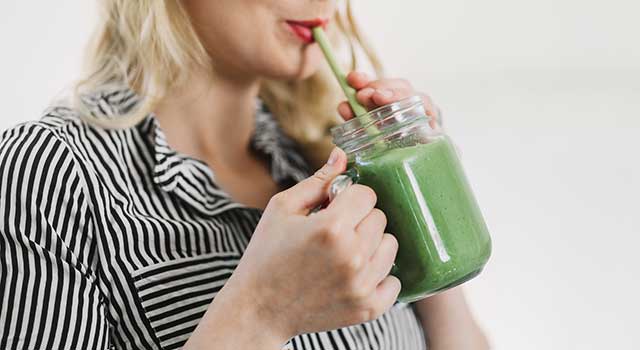
#1: Craving ice cream? Try yogurt smoothies.
If you want something cold and rich, try a yogurt smoothie. Yogurt is a good source of calcium, which is necessary for the development of your baby's bones and teeth, as well as heart, nerve and muscle function. If you don't consume enough calcium, your body will take it from your bones. Yogurt also provides protein — the building block of tissues — as well as probiotics (good bacteria that help you digest food).
Just be sure to watch out for additives in the yogurt you choose. Many flavored varieties are loaded with sugar. Also, if you like the tartness, opt for Greek yogurt because it contains more protein.
Healthy add-ins include:
- Cocoa
- Berries
- Greens
- Nut butter
- Avocado
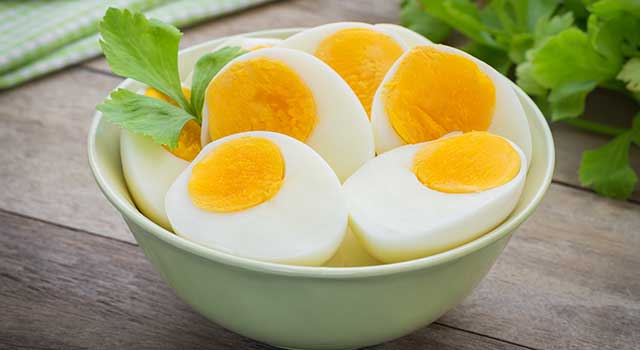
#2: Want something savory? Try hard-boiled eggs.
When you're feeling in the mood for something savory and filling, eggs are a good choice. That's because yolks are an excellent source of choline, a nutrient that's vital for your baby's brain development. Cook a batch of hard-boiled eggs or whip up deviled eggs to have on hand for whenever hunger strikes. Just make sure the eggs are cooked all the way through to reduce the risk of foodborne illness.
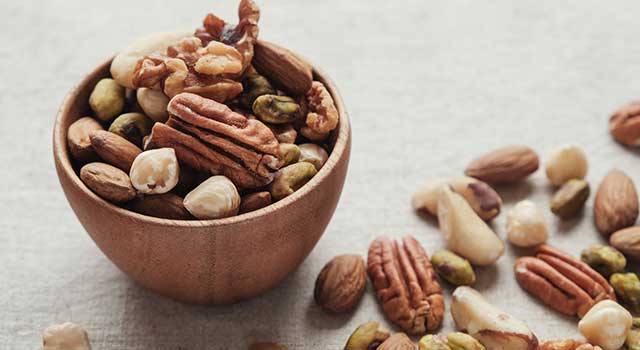
#3: Got the munchies? Try nuts.
Want something crunchy? Turn to nuts. Nuts are great to munch on during pregnancy, since they provide protein, fiber, healthy fat and minerals. Plus, they're a nutrient-dense food, so you don't have to eat a lot to satisfy your hunger, which is ideal for women who struggle with nausea or who tend to get full quickly toward the end of pregnancy.
Any nut will do, but walnuts are particularly beneficial because they contain omega-3 fatty acids, a type of fat that's commonly found in fish and helps with your baby's brain development. If you're a vegetarian or don't eat fish, it's important to eat other foods that contain omega-3s such as walnuts. Talk to your doctor about taking a supplement to make sure you get enough of these essential fats.
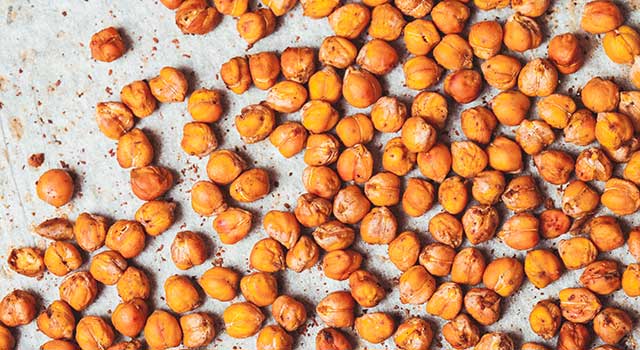
#4: In the mood for chips? Try dried beans.
When you're craving chips, dried bean snacks are a healthier substitute. You can find different flavored versions of roasted chickpeas, fava beans and soybeans at the store, or make a batch at home.
Beans have folic acid, which is key for pregnant women because it reduces the chance of spinal cord birth defects. They're also high in iron, which is used to create more red blood cells that carry oxygen throughout your body and to your baby. During pregnancy, you need one and a half times the usual amount of iron. Low iron, or anemia, is the most common nutritional deficiency among pregnant women. To increase the absorption of iron in beans, pair them with a food high in vitamin C such as sliced bell peppers, oranges, melon or strawberries.
One caveat: Packaged dried bean snacks have variable amounts of sodium. Excess sodium intake causes you to retain water and can lead to swelling. Eat these in moderation. If you see sudden signs of swelling, talk to your doctor. It could be a sign of preeclampsia, a potentially dangerous pregnancy condition.
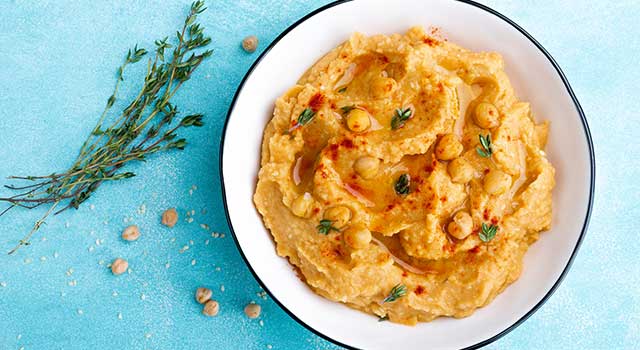
#5: Need a boost of fiber? Try hummus and veggies.
One of the unfortunate side effects of pregnancy can be constipation. Along with drinking enough fluid, getting good sources of fiber like vegetables can keep you regular.
Vegetables also have antioxidants, phytonutrients, vitamins and minerals — substances that protect the health of your cells and support your immune system, which is slightly lowered during pregnancy. And, when you dip veggies like carrots and broccoli into hummus, you get an extra helping of fiber along with protein to keep you feeling full longer.
Choosing healthy snacks doesn't have to take a lot of effort. Prioritize nutrition during pregnancy by keeping your kitchen stocked with nourishing options. That way, when you reach for a snack it will be a good one for you and your baby.
Is It Bad to Eat Empty Calories While Pregnant
Source: https://www.hopkinsmedicine.org/health/wellness-and-prevention/5-snack-foods-to-eat-while-pregnant